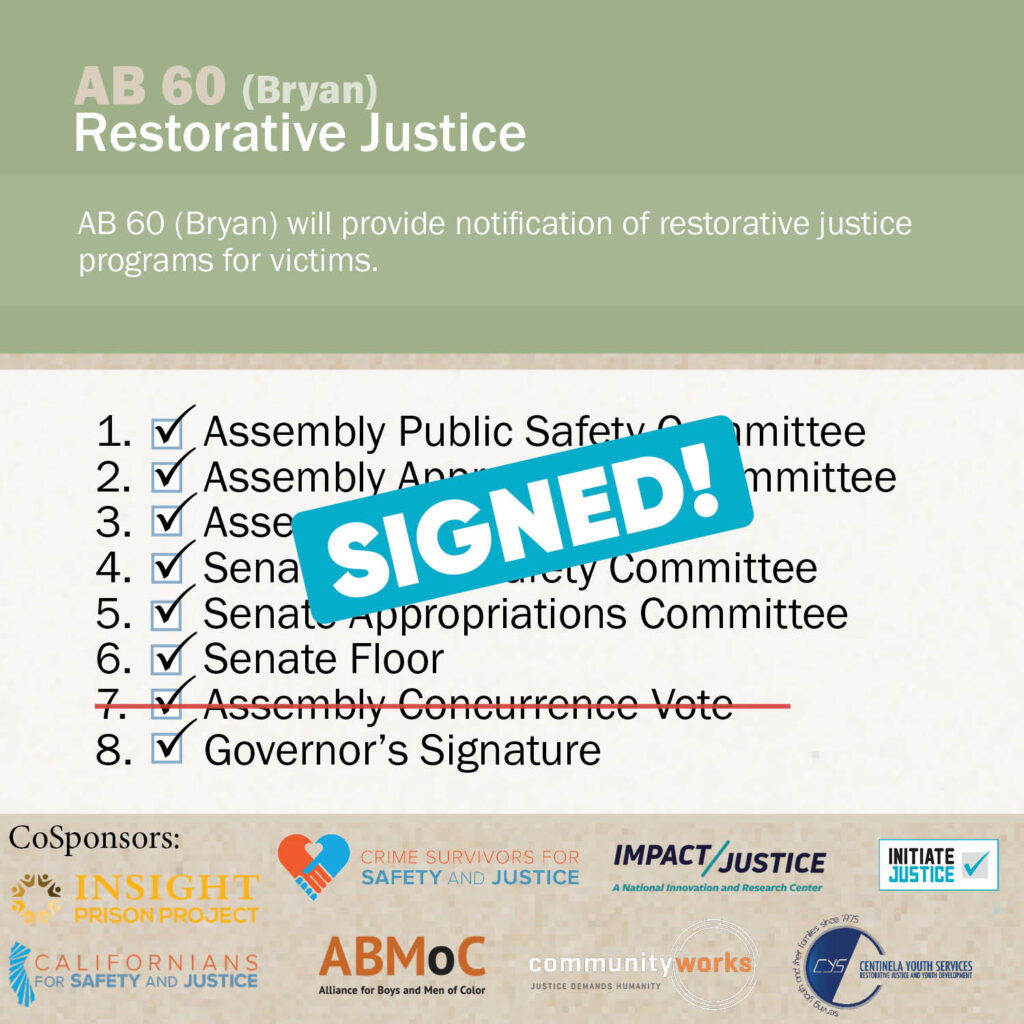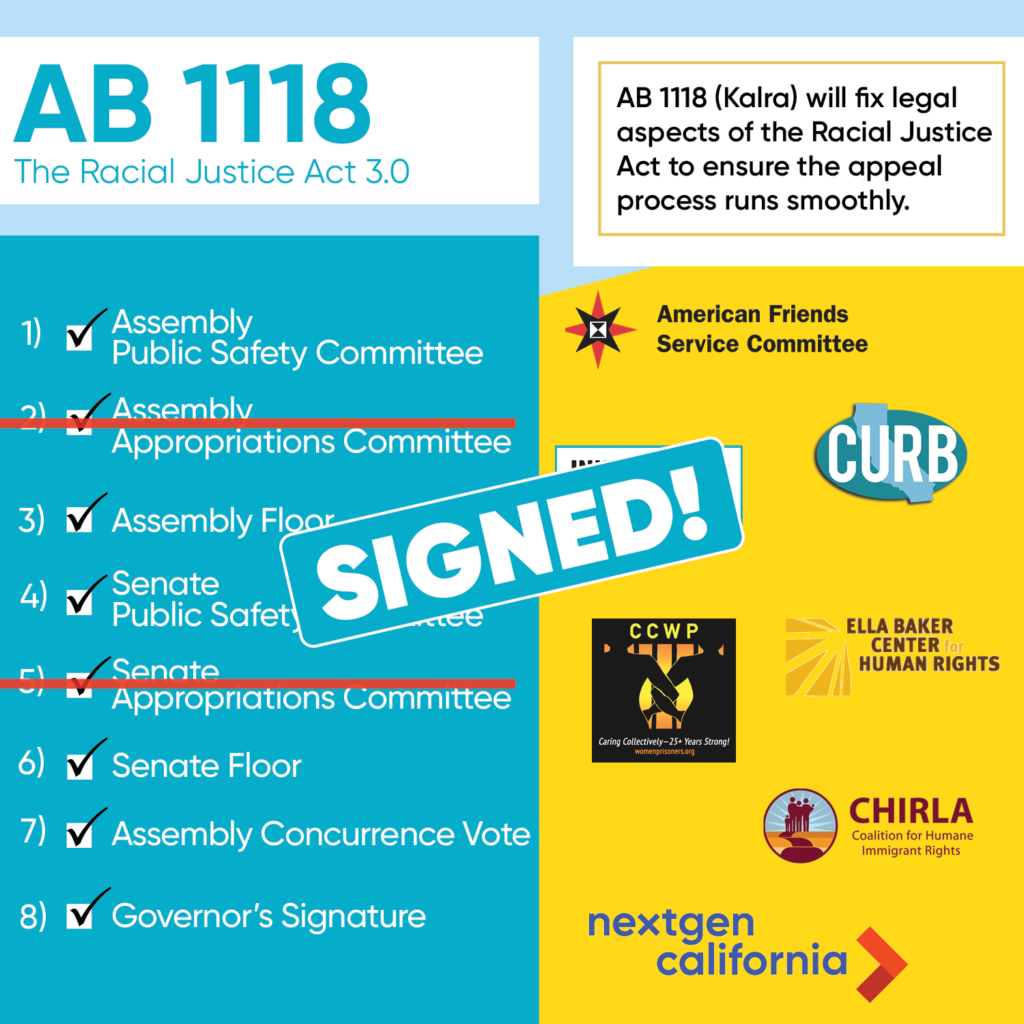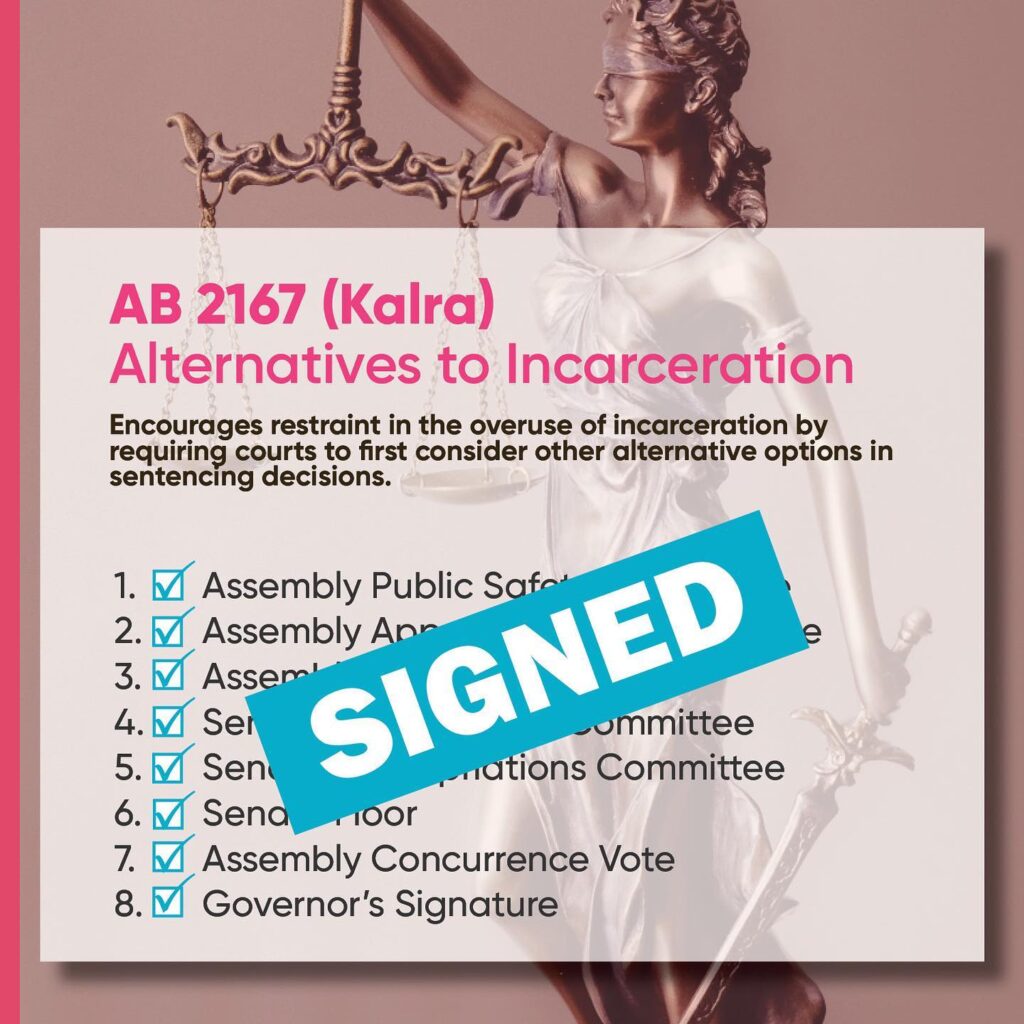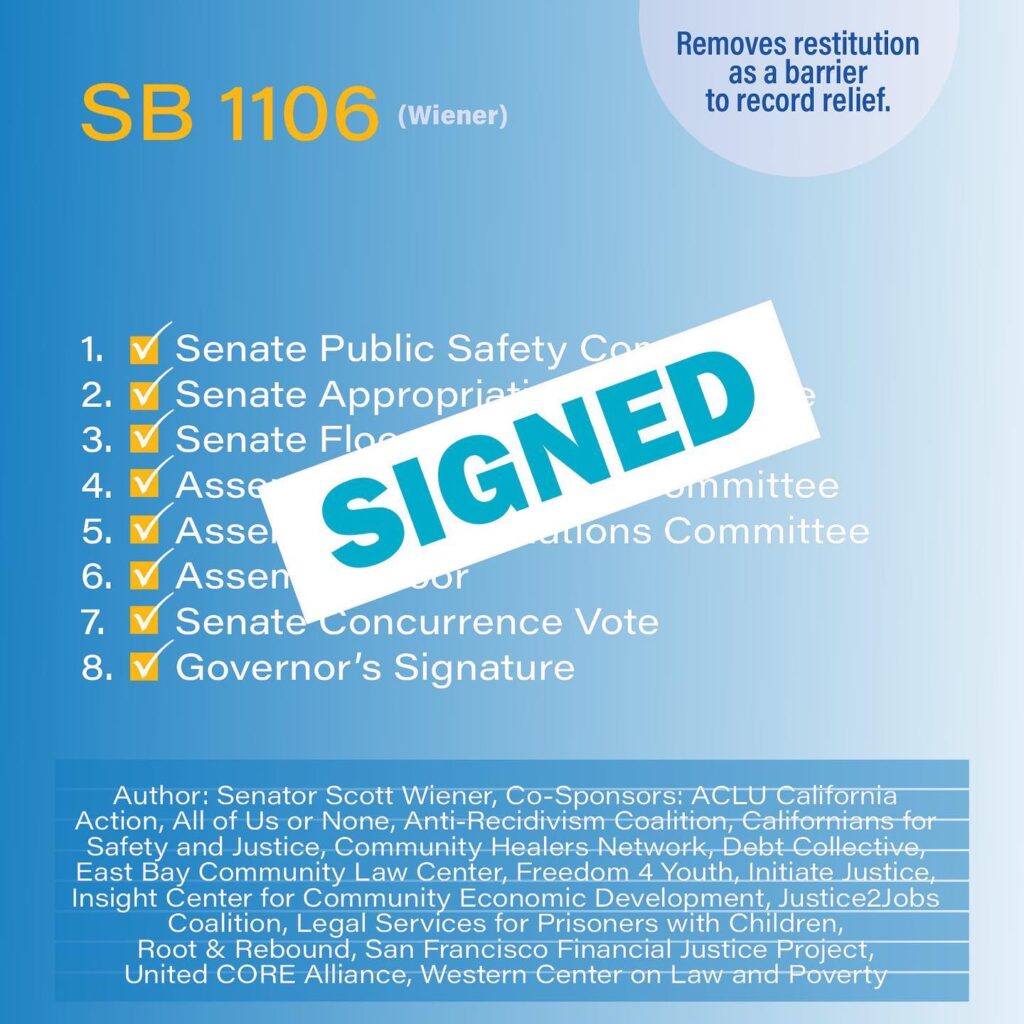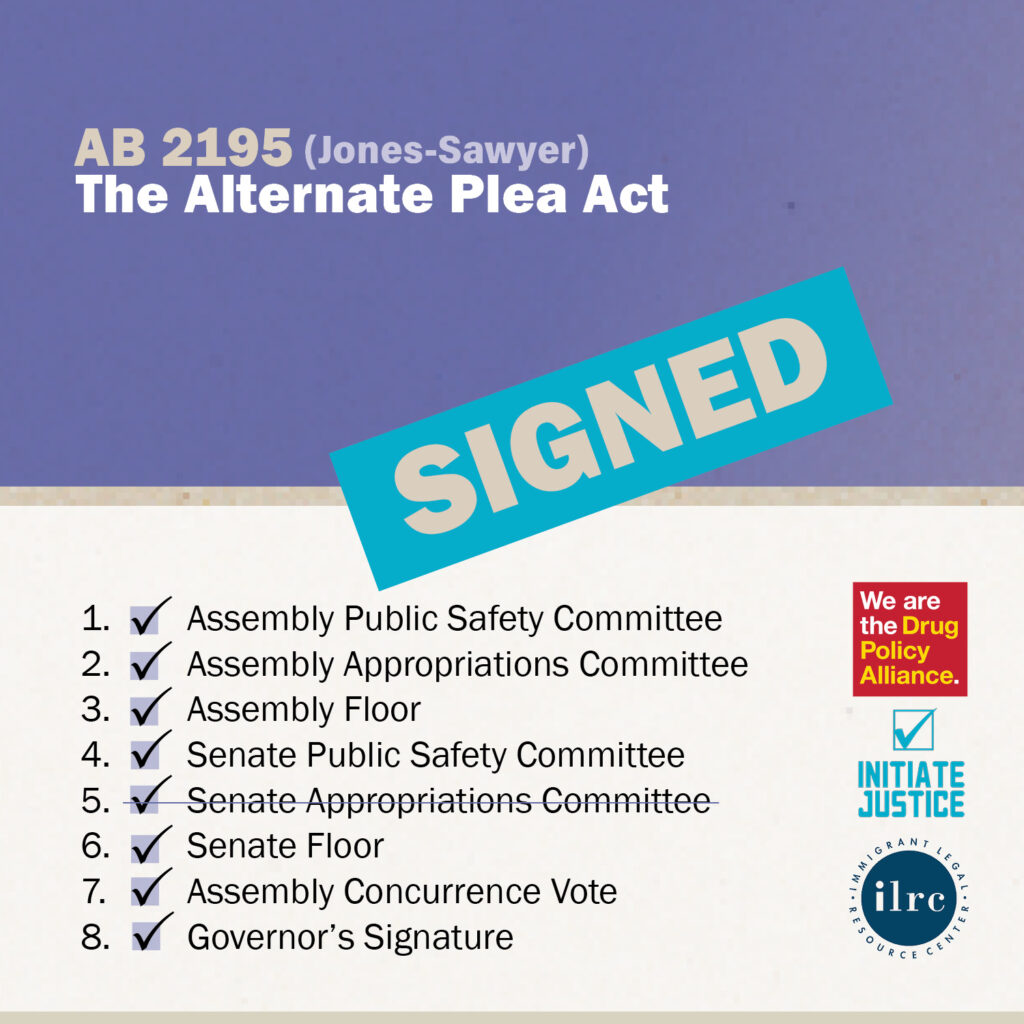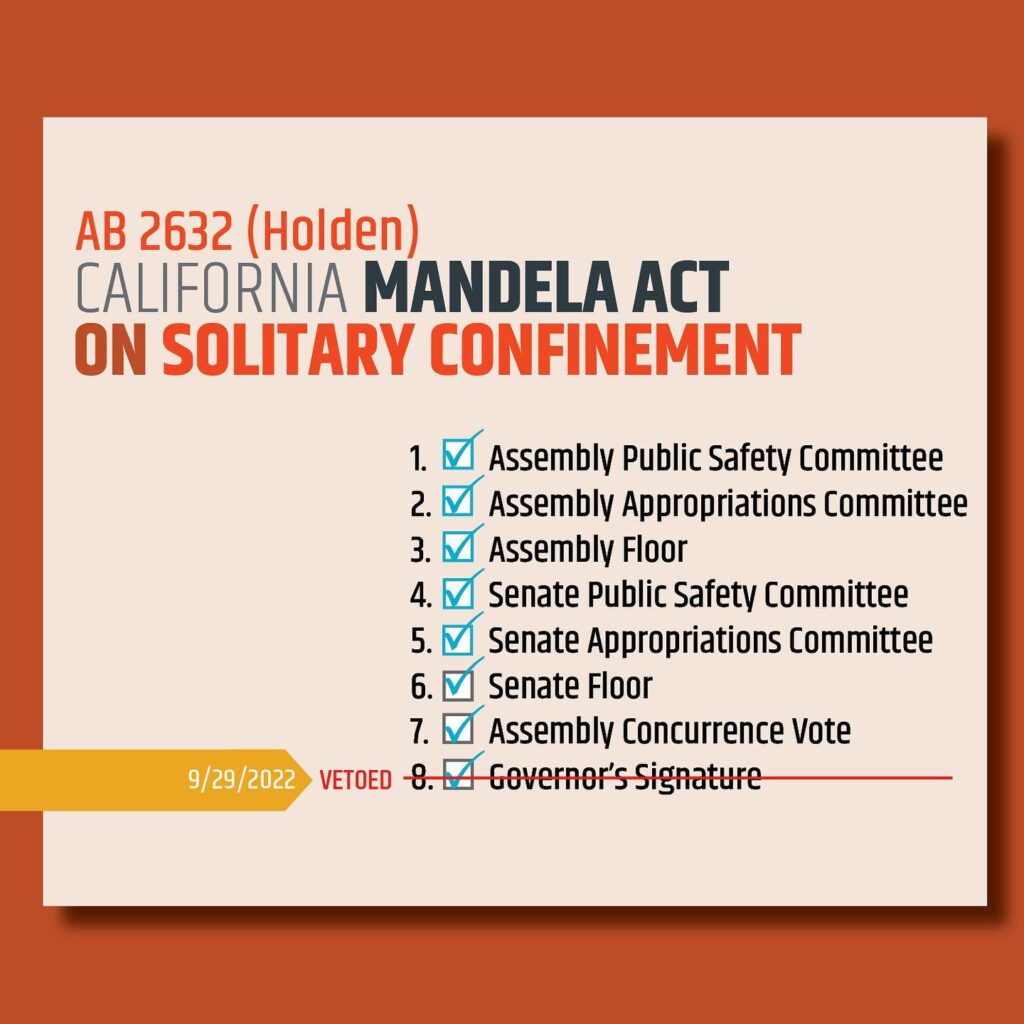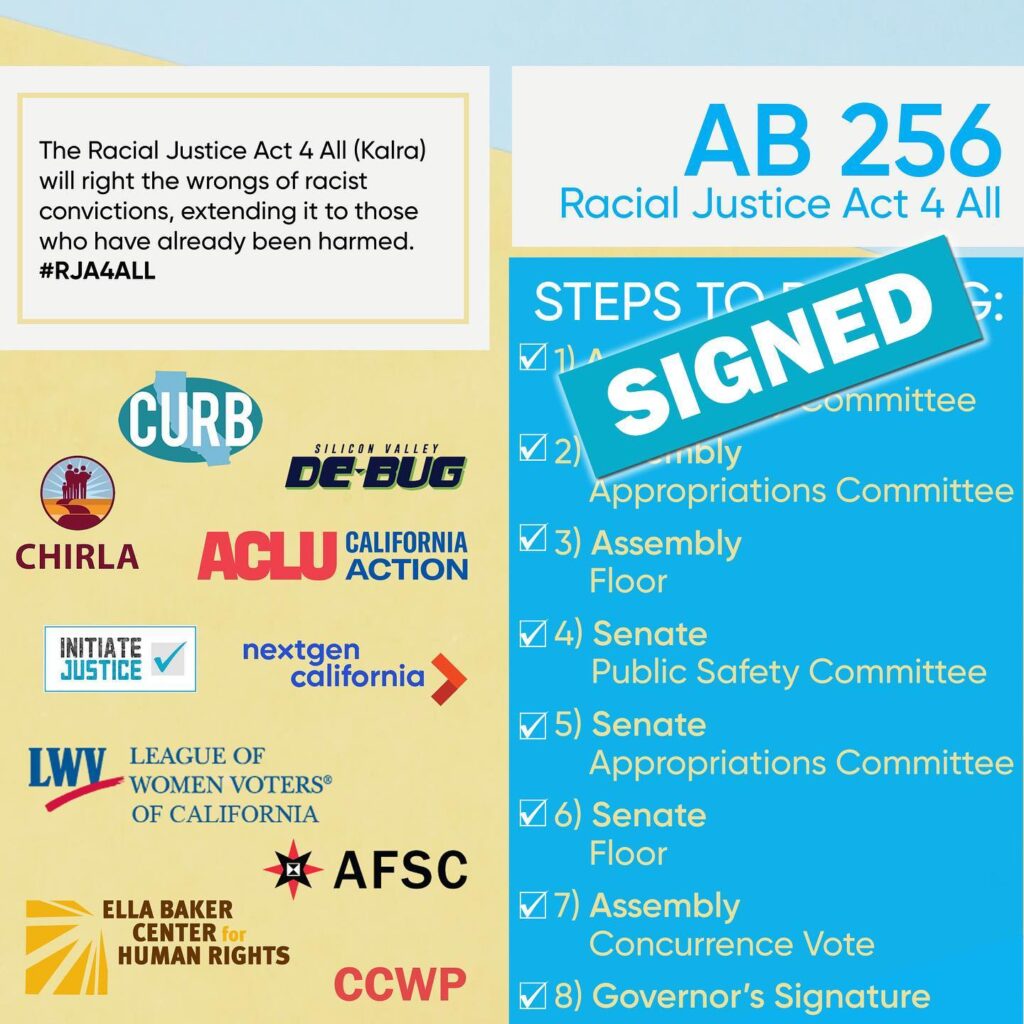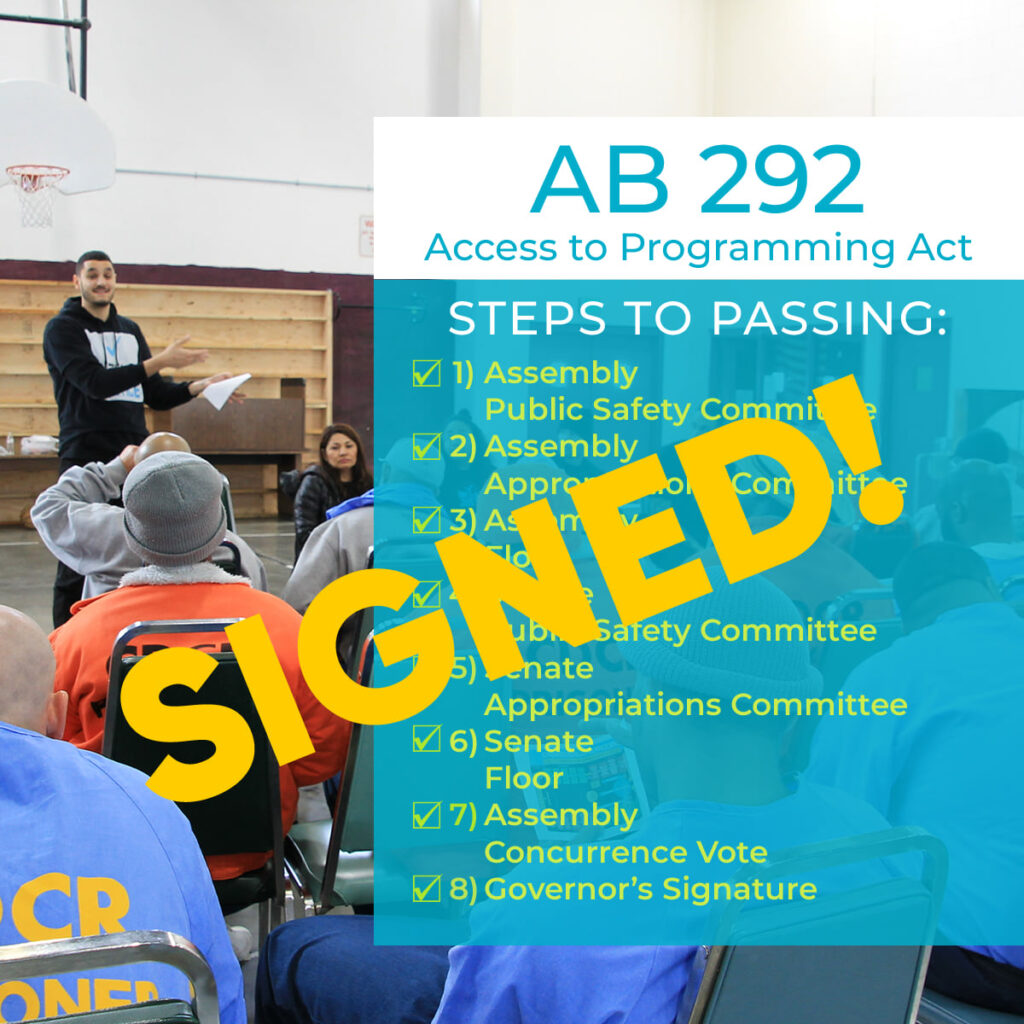AB 581 (Authored by Carrillo) standardize the process across all prisons for program providers to visit institutions and reduce barriers to entry.
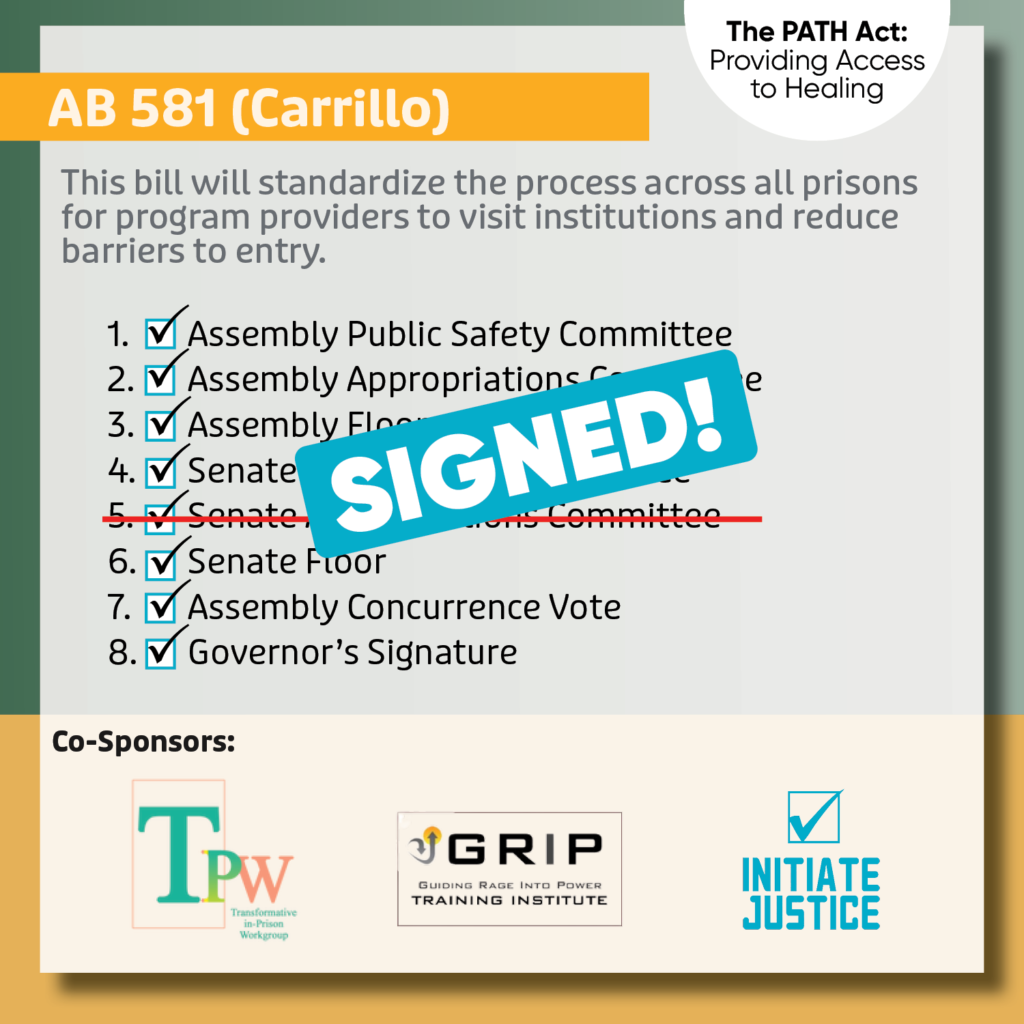
AB 60 (Authored by Bryan) will standardize the process across all prisons for program providers to visit institutions and reduce barriers to entry.
AB 1118 (Authored by Kalra) will fix legal aspects of the Racial Justice Act to ensure the appeal process runs smoothly.
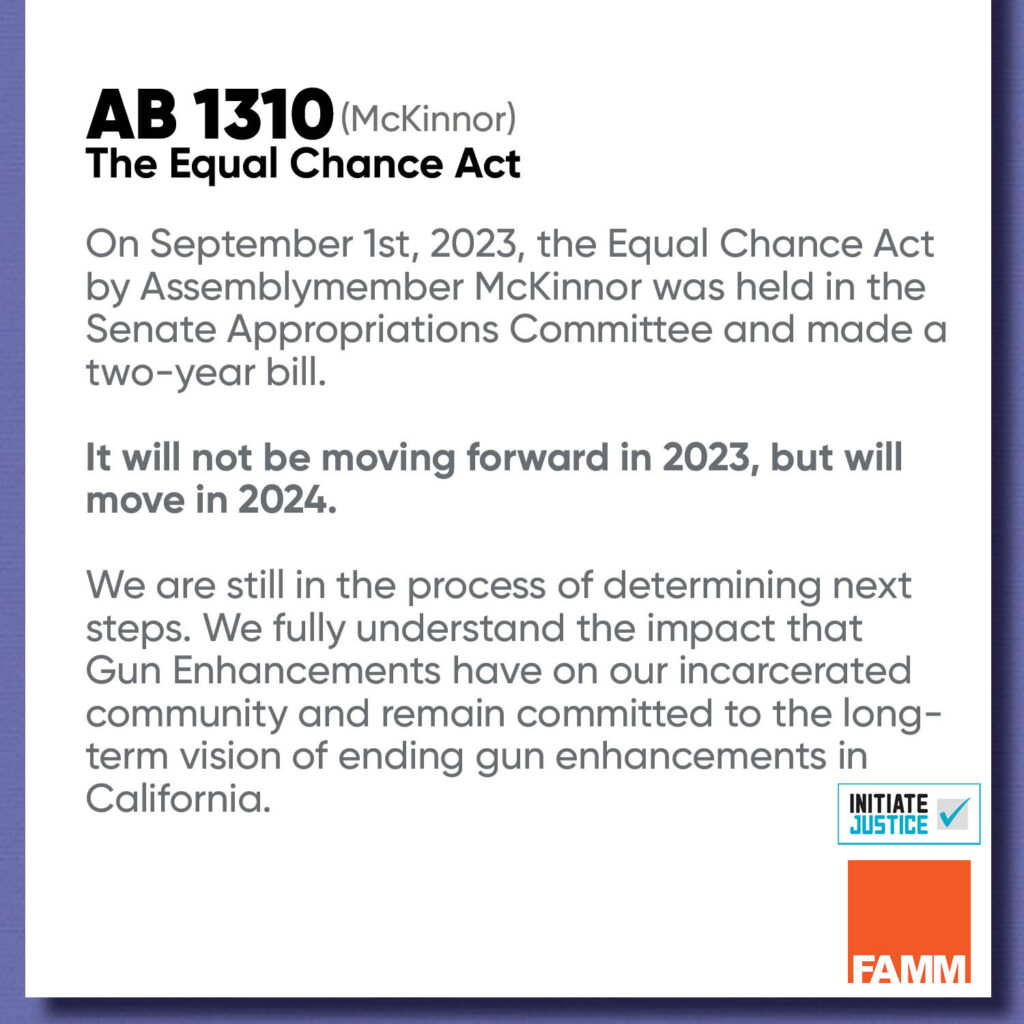
AB 1310 (Authored by McKinnor) would have allowed an incarcerated person who was convicted of firearm enhancements (Penal Code sections 12022.5 or 12022.53) to be automatically referred to court for resentencing. The bill will require the court to have a presumption in favor of resentencing, which may only be overcome if a court finds the defendant is an unreasonable risk of danger to public safety. The bill would have required the court to appoint counsel for the hearing. A previous bill, SB 620 (Bradford) allowed judges to strike enhancements at sentencing, but it was not retroactive. This tried to make it fully retroactive.
AB 2167 (Authored by Kalra) AB 2167 would encourage restraint in the overuse of incarceration by requiring courts to first consider other alternative options in sentencing decisions.
AB 1106 (Authored by Wiener) This bill prevents restitution from acting as a barrier to criminal record relief like expungement or record sealing. Expungement or sealing criminal records increases access to employment, education, housing and other social services which support successful re-entry. In the future, we will tackle other areas related to restitution, like ending collateral consequences for people who owe restitution, CDCR garnishment, and finding other ways to provide compensation for crime survivors.
AB 2195 (Authored by Jones-Sawyer) AB 2195 will protect Californians from the collateral consequences of drug convictions by creating an alternate plea for those facing drug-related charges. Drug convictions can destabilize someone’s life, and for non-citizens, can sometimes result in deportation. AB 2195 creates a safe alternative to these life-altering consequences and challenges the devastating impacts of the War on Drugs.
AB 2632 (Authored by Holden) Would have placed clear limits on the use of solitary confinement across jails, prisons, and detention facilities, abolished the use of solitary confinement for certain vulnerable groups, and ensured transparent record-keeping over the use of solitary confinement. AB 2632 was vetoed by Governor Newsom in 2022.
AB 256 (Authored by Kalra) This bill builds upon the Racial Justice Act, passed in 2020 (AB 2542 – Kalra), that prohibits the state from seeking or obtaining a criminal conviction, or from imposing a sentence, based upon race, ethnicity or national origin. This bill extends these protections to those who have already been impacted by unfair convictions and sentences. Providing for retroactivity will give these individuals an equal opportunity to pursue justice.
AB 292 (Authored by Stone): The Access to Programming Act reduces common barriers to in-prison programming such as; long waitlists, frequent transfers, and inflexible work schedules that conflict with program availability, while also ensuring that programming continues during lockdowns. This bill was passed by the CA Legislature in 2021 and will be implemented starting Jan 1, 2022.
AB 1509 (Authored by Lee) The Anti-Racism Sentencing Reform Act would have eliminated most gun enhancements and significantly reduced all other gun enhancements to 1/2/3 years and provided a pathway for immediate re-sentencing for those currently incarcerated with gun enhancements. AB 1509 did not pass in 2021, but will be brought back in the future (under a new bill number).


Proposition 17 was a ballot initiative on the 2020 California ballot that restored voting rights to every person who completed their prison term in California. Now, around 50,000 Californians who return home from prison and are working, paying taxes, and positively contributing to their communities can now vote on every level of government to shape systems that affect them and their families.
ACA 6 + AB 646 (Authored by McCarty), the Free the Vote Act. These measures needed to pass the Legislature in order for Prop 17 to be on the ballot to restore voting rights for people on parole. ACA 6 passed with a 2/3rds majority support in 2020.


AB 965 (Authored by Stone): Expanding Credit Earning for People Eligible for Youth Parole. This bill was passed by the CA Legislature in 2019 and will be implemented starting Jan 1, 2022.
AB 45 (Authored by Stone). This bill permanently eliminates medical and dental copayments for people inside of California’s jails and prisons. This bill passed in 2019.


SB 1437 (Authored by Skinner) This bill limits the use of the felony murder rule. It passed in 2018, and has been in effect since 2019.
